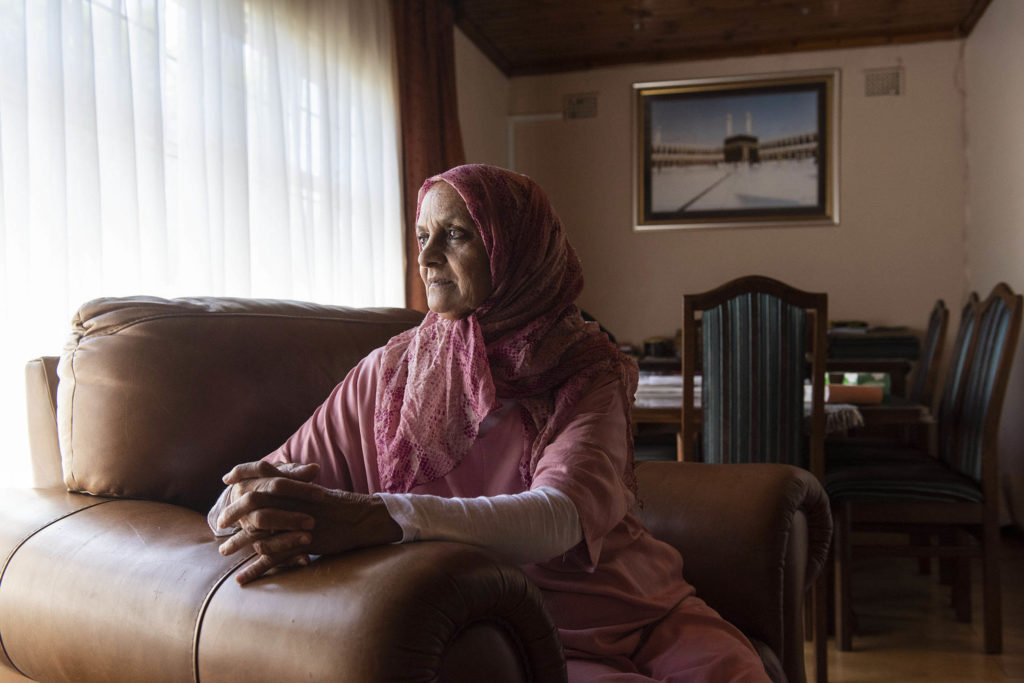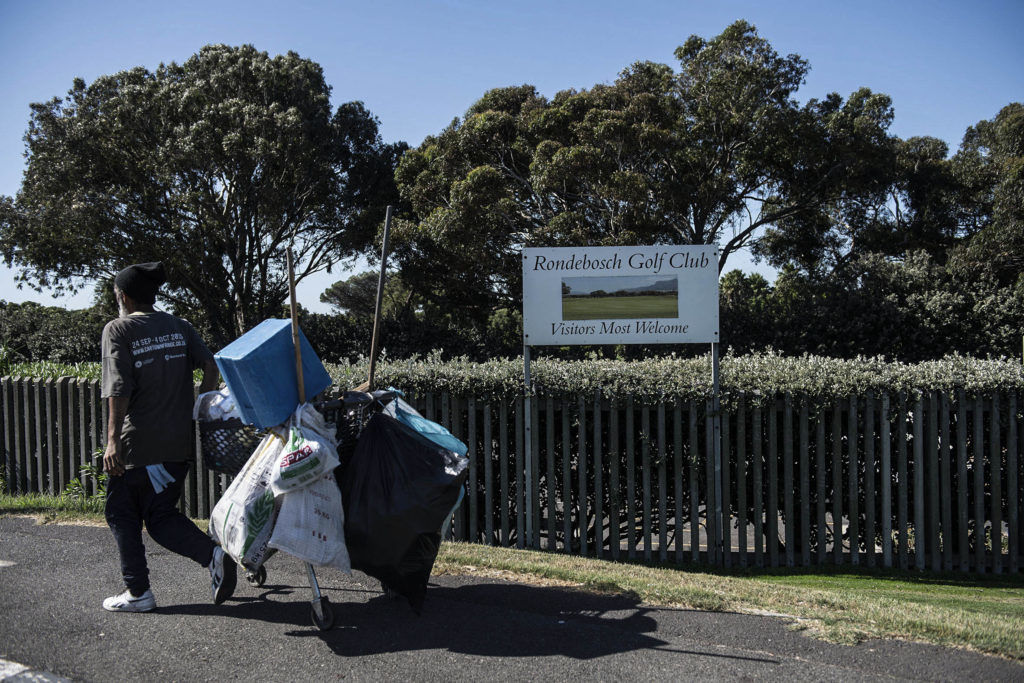It is regrettable that people who claim to speak for the working class and poor are trying to block it. (David Harrison)
As the City of Cape Town mulls over public comment about whether it should extend the land-use lease of the Rondebosch Golf Club, former residents of the area forcibly removed during apartheid say the city has a moral obligation to use the land for social housing.
Former residents of the community — once known as Black River — and activists have raised objections to the City releasing the public land to the golf club, which has existed on its current site since 1935.
The club currently pays just over R1000 a month to the City for the use of almost 50 hectares of land.
Social housing campaigners say this land would be better suited for low-cost housing, because it is close to the Cape Town inner-city where people work.
Academics at the University of the Western Cape, Professor Uma Dhupelia-Mesthrie and Dr Koni Benson, added their voices to public comment opposing the reissuing of the lease, arguing the golf club was instrumental in the area being declared whites-only in the 1960s. This resulted in thousands of people being forcibly removed.
The academics sourced records of official correspondence from the club to the City administration in 1955 that objected to “non-Europeans” living too close to the golf course. This was in reference to the community of Black River.
“Rondebosch didn’t just happen to be a green, leafy, white suburb, it was created that way. And the Rondebosch Golf course had a very interesting role to play in lobbying,” Benson said.
“What did it take for them to get that land? … There’s no acknowledgement, because once you acknowledge it you have to do something about it.
“Redistributing 45 football fields of land would seem like a pretty obvious place to start in the City of Cape Town, where you have over 450000 families on waiting lists for housing,” Benson added.
Aziza Pangarker is a 75-year-old former resident of Black River who now lives in Crawford, about 10km away. Her family owned a business in the area, and she remembers a happy childhood, far removed from today’s built-up homes and well- manicured gardens.
 Former resident of Black River Aziza Pangarker (David Harrison)
Former resident of Black River Aziza Pangarker (David Harrison)
“There weren’t as many houses back in those days. There was a vlei where the boys would play We would run in the fields. That was our playground during the afternoons and school holidays.
“Whenever we meet people now from Black River, there is this special bond. It’s like meeting family after a long time,” she said.
Pangarker recalls hearing the news that her family would be forced to leave, which meant not only a physical disconnection from the home she grew up in, but the emotional split of a close-knit community.
“When the death knell came, it was like everybody was in shock. I don’t know if older folks ever came to terms with it,” she said.
“I remember my mother crying. She loved gardening and had planted fruit trees — she would call them her children. It wasn’t just leaving the house behind, it was leaving those things also.”
After 1994, Pangarker’s sister made a land-restitution claim on behalf of her siblings and they were awarded monetary compensation.
Pangarker doesn’t expect to move back to the area, but she believes the descendents of those people evicted must benefit from city-owned land such as the golf course, in memory of people like her parents who died with broken hearts.
“How can it ever be right for the people who were [removed]? It’s so ludicrous. How do you even compensate a human being for ripping away their lives? Even giving back land can’t compensate for destroying lives,” Pangarker said.
 Contested space: The Rondebosch Golf Club occupies prime land that activists say should be used for low-cost housing, because it is close to the Cape Town inner-city where people work. (David Harrison)
Contested space: The Rondebosch Golf Club occupies prime land that activists say should be used for low-cost housing, because it is close to the Cape Town inner-city where people work. (David Harrison)
“Many of those people were sent to what are today poor and violent communities, and I often wonder, what has become of their children and grandchildren? How did they turn out? The ideal thing to do would be to use the golf land for housing for people to move closer to the city. That would be ideal. If it can be done, why not?”
In response, the Rondebosch Golf Club said it has no knowledge about whether its previous club management were instrumental in lobbying authorities to remove black families decades ago.
“We do not believe it would be appropriate to comment now, on statements allegedly made by one individual 65 years ago,” said club manager Don Ball.
The club said it supports public dialogue about the issue of social housing, and that it has had meetings with activist groups about the matter.
“Legal protests are a legitimate form of public expression. If the activists have an issue with the city and its policies, we believe it would be more reasonable to address the city — or, more appropriately, the national government — directly in public open space, rather than addressing their issues at the golf club, on private property,” Ball added.
He said if the club were to close it would negatively affect sport and recreation in the city.
“Cape Town would lose one of its most accessible golf clubs — for all of its people; it would lose a positive contribution to the sports, tourism, community and golf development aspects of Cape Town’s economy. It would also leave destitute many families who depend — directly or indirectly — on the club’s activities,” Ball said.
Meanwhile the City of Cape Town said it would go ahead with assessing public comment fairly.
“A total of 1940 persons have taken the opportunity to comment over the 30-day public participation period, as per the Local Government Municipal Finance Act, and the associated Municipal Asset Transfer Regulations. The City will give fair and proper consideration to each comment received. In terms of the process, the City’s property management branch will make a professional recommendation taking into account public comment,” it said in a statement.
The City also said if the lease were renewed it would reconsider how much the Rondebosch Golf Club would have to pay each month.